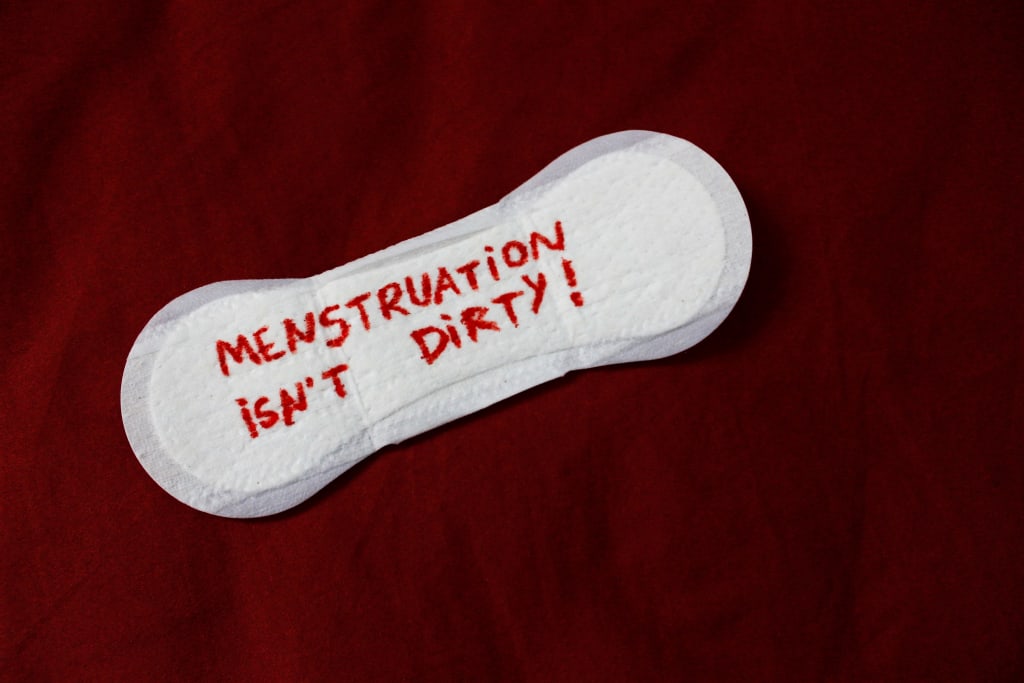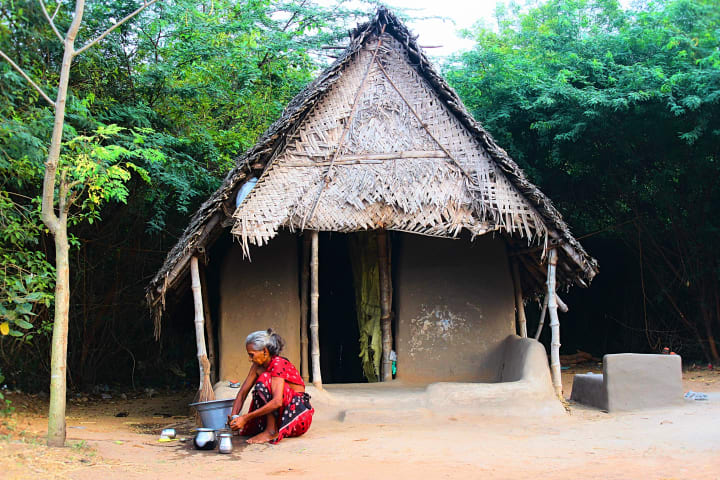Women in India are quarantining for being ‘impure’.
Punishment for menstruating every month.

Lady Business, Aunt Flo, Time of the month and mother nature. These are just some names many women around the world use to refer to their periods. In a time where women are empowered and encouraged to fight for gender equality there are still some part in the world where women are punished and shunned away from the society during their menstrual cycle.
many names and but so little discussion. Why is it that even in 2020 females can't talk about Periods openly? is it the shame? or the orthodox beliefs? The silence surrounding menstruation is loud, visible and common among Indian household. Can the modern India change its beliefs and finally de-stigmatise one of the oldest taboos existing in Hindu culture?
What are the Myths associated with Menstruation?
There are several myths that still exists in Hindu culture and they act as a barrier in between a girl’s education. From myths like girls are 'impure' during their periods, not allowed in the kitchen , visit sacred places, not touch or go near plants to being isolated in a hut or a separate shed.
These bizarre myths that force, young and old, educated and uneducated, rich and poor women in South Asia to feel ashamed to discuss the topic of menstruation in the community.
Hinduism being one of the oldest religions in the world as well as the most orthodox beliefs and traditions that still exists in 2020. It is surprising to many that how is it possible for a religion to worship many different female goddesses whilst also binding the female population by the orthodox beliefs and harsh rituals during a natural biological process.
There may be rituals and restriction in place for women during menstruation cycle However, there are also some NGO's and Bollywood movie 'PadMan' that are shedding more light to the importance of menstruation education and breaking the silence surrounding the menstruation hygiene taboos.

Menstruation vs Girls education
Menstruation cycle is a natural process that many women experience around the world but don’t talk about it. When it comes to religion especially Hinduism, it seems that women are always seen lesser than men. Even though, Hinduism is the third largest religion in the world, it is also a barrier for women empowerment. Even at the time of the rise of women empowerment and scientific evidence many educated and uneducated women are following the old ideas about menstruation is an unclean and ‘impure’ process for women. Unfortunately, religion plays a big pivotal role during the menstruation myths and beliefs.
According to a 2014 NGO Dasra reported that around 23 million girls drop out of school annually after they start their periods. However, menstruation taboos are a big part of this statistics because menstruation is a subject of gender disparity in India and the myths that are prevalent, shunning the girls for during their menstruation cycle.
Many women and young girls living below the poverty line are forced to stop their education due to the lack of toilets and the expensive sanitary napkins. Hence, many women choose to use old rags, cloths and unsanitary items to stop the flow because the sanitary napkins are more expensive than a plate of meal.

Isolation huts or Impure huts?
Even though, India has gone through so many changes in the last couple decades one thing it’s failed to change is the menstruation taboos that are still being practised in rural parts of India. Women and young girls are suffering silently every month for at least three to five days, and yet no one is talking about it.
Menstruation Huts are designed for women who are “Impure” and “untouchable” during their monthly cycle. Although, some states in India have banned the menstruation huts and are moving towards a positive step, however, some tribes are still forcing women to live in huts during their monthly cycle. Many women and young girls have lost their lives while living in isolation huts during their cycle.
Although isolation huts have been phased out in the city but the practise of ‘untouchability’ which consists of not prohibition from entering kitchen, temple and touching food. Many women take part in such odd menstruation practises because the fear of being outcast from the community and offending the old rituals and traditions.
There is no denying that every culture has its own beliefs, values and myths surrounding menstruation, however, in Indian culture such myths are becoming a barrier in between girls’ education. Although, many NGO’s around India are breaking the silence surrounding menstruation and providing more education in rural area for families. It is going to take a lot more work to create more awareness about the process of menstruation instead of just running campaigns to “save a girl, educate a girl”.
Menstruation is a stigma created by old age beliefs of being 'Impure' or prohibited to enter holy grounds and temples. Due to these beliefs and myths many girls choose to not continue their education or have been forced to go into isolation during the period cycle. Myths and beliefs have been part of the Indian culture for centuries and unfortunately they are here to stay.
A study suggested that more than 70 percent of adolescent girls are still unaware of menstruation until they get it themselves. The lack of conversation and education is the main source of problem for this statistic. Many girls are never fully taught how to deal with periods because the so called 'talk' is never discussed in many South Asian household. Girls are not informed on how to handle the pain or the care that needs to be taken during the period cycle and this has been going on for generations.
In India sanitary pads are bought from a pharmacist who tightly wraps them in a black plastic bag so they are hidden away from the public eye. The shame and the discrimination has even put many women off from buying sanitary pads hence why they turn to use old rags, cloth and other risky materials to manage the flow.
The current Indian administration is progressing slowly towards supporting the girls by campaigning around the issue to 'save and educate girls' and some states even providing free education for girls. However, there is still a lack of proper education and knowledge about menstruation among the general public.
About the Creator
Reader insights
Outstanding
Excellent work. Looking forward to reading more!
Top insights
Expert insights and opinions
Arguments were carefully researched and presented
Eye opening
Niche topic & fresh perspectives
On-point and relevant
Writing reflected the title & theme





Comments (1)
I think the prejudice is across many cultures..at least in the Mideastern region where many faiths are birthed. There is a program in which you can volunteer to sew up washable pads to encourage girls to attend school during their cycle. The local warehouse run by the Methodist Church in my state participates in that program. I was raised by older parents in the 70's in the States, and my mother very much discouraged me from talking openly about menstruation issues and pain. I think some of her concern was that men would say women could not make good decisions during their cycles. She did not tell me about menstruation until the night before our school showed a health film to us fifth grade girls about the changes our bodies would experience.